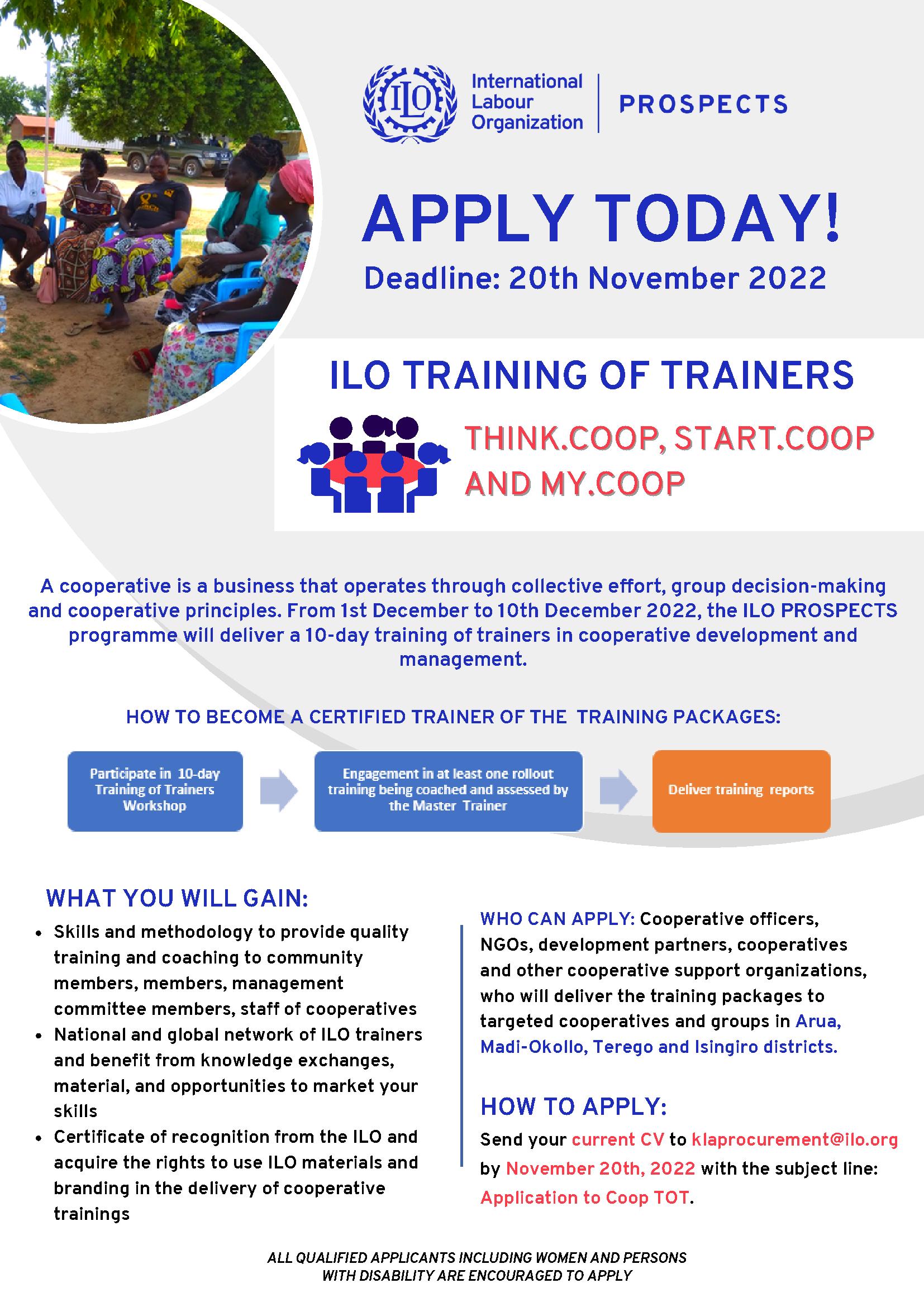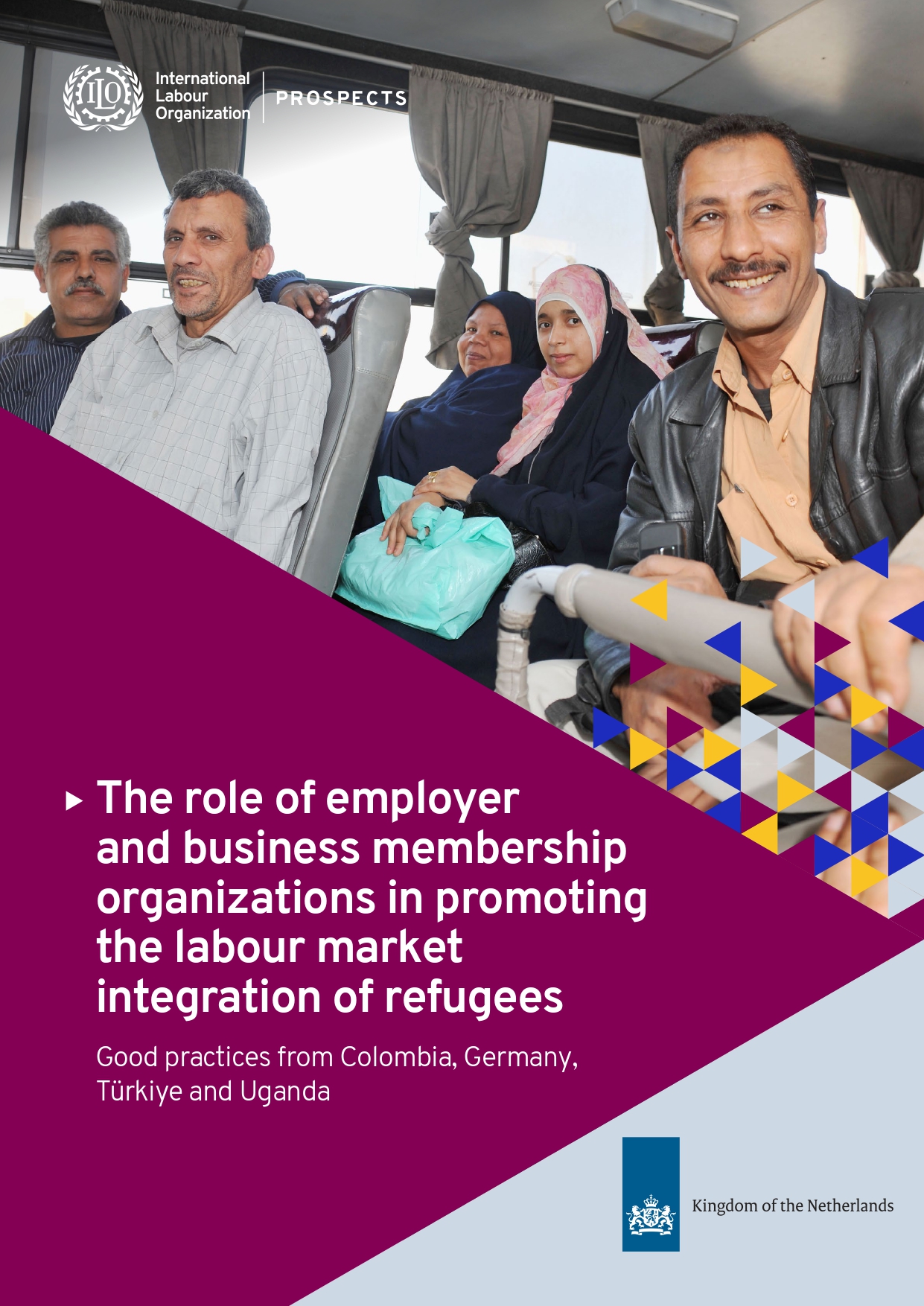Ouganda
Publication
Executive Summary: Review of national policy, legislative and regulatory frameworks and practice
Date de publication:
26 févr. 2024
Source:
OIT
The global displacement crisis demands integration solutions, notably in labor markets. The PROSPECTS Partnership, operating across Egypt, Ethiopia, Iraq, Jordan, Kenya, Lebanon, Uganda, and Sudan, aims to support refugee integration. The International Labour Organization (ILO) conducted a review focusing on refugees' right to work and rights at work. Findings reveal significant gaps in legislation, hindering refugee access to formal employment, justice systems, and social security benefits. Comprehensive legal reforms and practical support mechanisms are needed to facilitate refugee integration. Detailed country-specific reports are available for download on the ILO website.
Publication
Review of national policy, legislative and regulatory frameworks and practice
Date de publication:
20 févr. 2024
Source:
OIT
Through PROSPECTS programme, the ILO has undertaken a national policy, legislative and regulatory frameworks and practice review. This review includes an analysis of current legislation, policies and regulatory frameworks, and how their implementation works in practice across the eight PROSPECTS countries to support the governments in policy, legislation, regulatory development and/or reform as appropriate.
Through this review, the ILO seeks to explore further opportunities to strengthen policy, legislative and institutional environments and mechanisms, working closely with host governments and other national actors and partners.
By providing a comprehensive and robust picture of the situation on the ground, the report offers actionable areas of intervention to support policy development, reform and implementation capacity of the host governments, other national and local actors, including the social partners, to enhance inclusion and protection.
Through this review, the ILO seeks to explore further opportunities to strengthen policy, legislative and institutional environments and mechanisms, working closely with host governments and other national actors and partners.
By providing a comprehensive and robust picture of the situation on the ground, the report offers actionable areas of intervention to support policy development, reform and implementation capacity of the host governments, other national and local actors, including the social partners, to enhance inclusion and protection.
Note d'information
ILO Training of Trainers - Think COOP, Start COOP, My COOP
Date de publication:
22 déc. 2022
Source:
OIT
Who can apply: Cooperative officers, NGOs, development partners, cooperatives and other cooperative support organizations, who will deliver the training packages to targeted cooperatives and groups in Arua, Madi-Okollo, Terego and Isingiro districts.
How to apply: Send your current CV to klaprocurement@ilo.org by November 20th, 2022 with the subject line: Application to Coop TOT.
How to apply: Send your current CV to klaprocurement@ilo.org by November 20th, 2022 with the subject line: Application to Coop TOT.
Publication
The role of employer and business membership organizations in promoting the labour market integration of refugees
Date de publication:
22 déc. 2022
Source:
OIT
This brief highlights the role that Employers' and Business Member Organizations (EBMOs) can play in promoting the labour market integration of refugees. It showcases good practices of EBMOs from around the world, and how these organizations have worked with their members, government, workers’ organizations and other stakeholders to facilitate the labour market integration of refugees.
The content of the brief was developed through a two-fold approach: first, a global stocktaking exercise of relevant EBMOs’ experiences was undertaken, covering Colombia, Denmark, Ecuador, Egypt, France, Germany, Italy, Jordan, Türkiye and Uganda. Second, based on the depth of information available and the diversity of displacement crises, four countries were selected – Colombia, Germany, Türkiye and Uganda – to develop country-specific case studies with an overview of the displacement context and the displacement response of EBMOs, and a conclusion that summarizes the good practices of EBMOs from around the world.
These are organized into six themes:
(1) advocating for evidence-based policies;
(2) making the business case for hiring and working with refugees;
(3) matching refugee labour with employers’ needs;
(4) providing employers with legal and human resource support;
(5) publicly recognizing employers’ good practices; and
(6) engaging with development cooperation partners.
The content of the brief was developed through a two-fold approach: first, a global stocktaking exercise of relevant EBMOs’ experiences was undertaken, covering Colombia, Denmark, Ecuador, Egypt, France, Germany, Italy, Jordan, Türkiye and Uganda. Second, based on the depth of information available and the diversity of displacement crises, four countries were selected – Colombia, Germany, Türkiye and Uganda – to develop country-specific case studies with an overview of the displacement context and the displacement response of EBMOs, and a conclusion that summarizes the good practices of EBMOs from around the world.
These are organized into six themes:
(1) advocating for evidence-based policies;
(2) making the business case for hiring and working with refugees;
(3) matching refugee labour with employers’ needs;
(4) providing employers with legal and human resource support;
(5) publicly recognizing employers’ good practices; and
(6) engaging with development cooperation partners.


